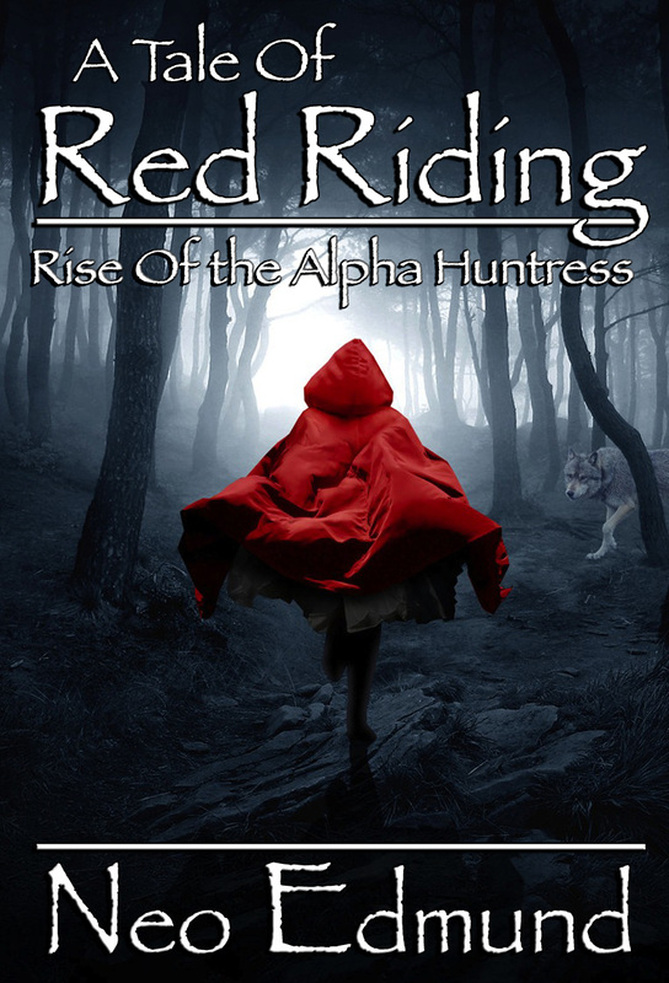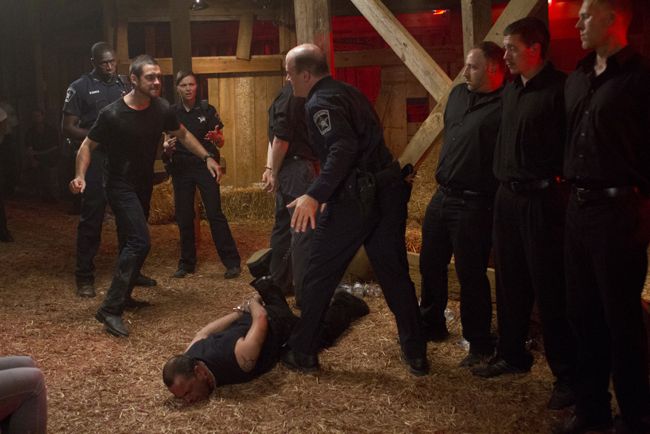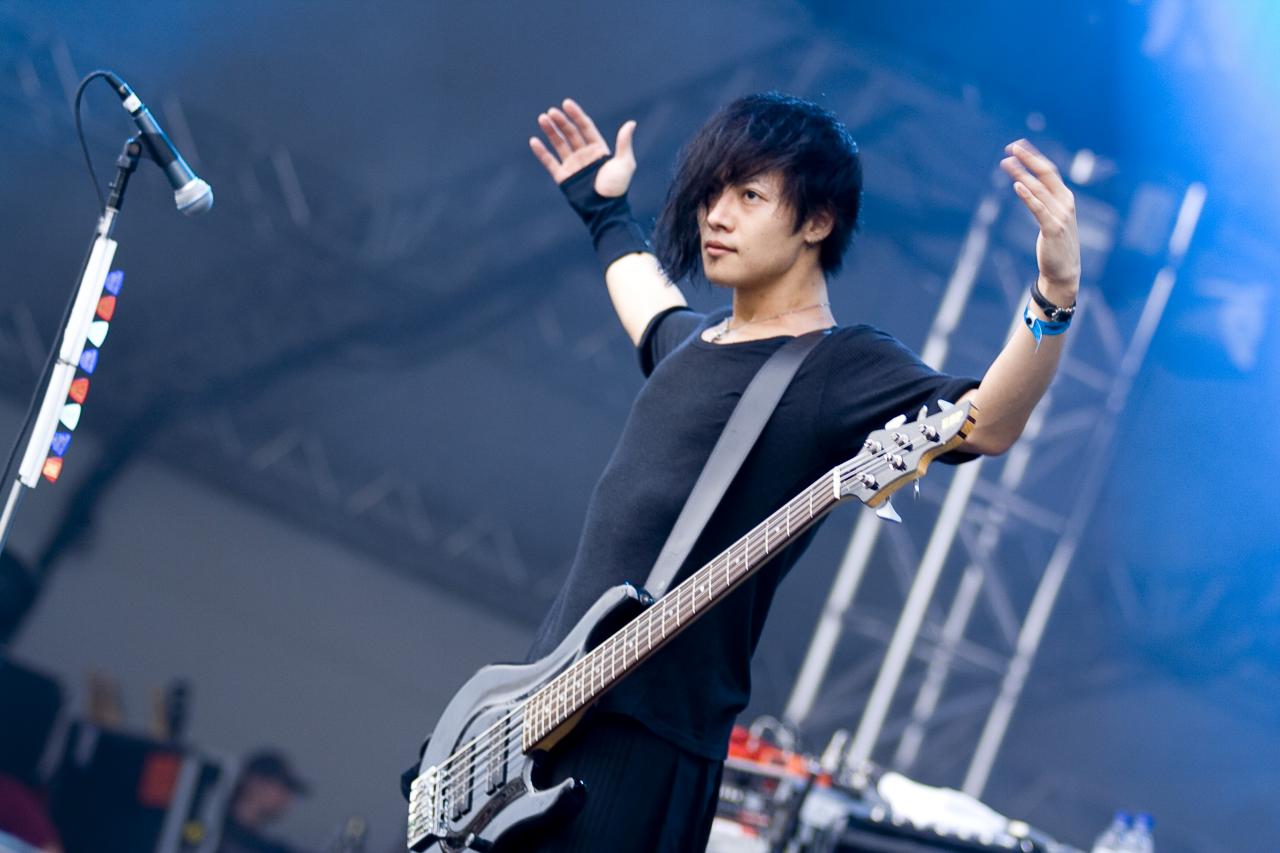DarkMedia Interviews Katherine Ramsland:
When author Katherine Ramsland takes you on a journey into places where few dare to tread, whether it be the dark recesses of the mind of a serial killer, or a subculture with a universe all its own, you know you’re in good hands. With staggering credentials and a voracious enthusiasm for her research, Katherine has earned a reputation for being not only thorough, but fearless. If you’ve ever considered a trip into the proverbial dark, on a vast number of subjects, this is the woman you’d want as your guide.
As the author of over thirty seven books and nearly a thousand articles on subjects such as vampires, true crime, forensic science, and the supernatural, it was a pleasure to have the opportunity to speak with Katherine about what fascinates her, how she feels about ‘drawing the line’ while conducting her research, and what was a life-changing experience in working with fellow author Anne Rice.
You once said, “I think the world is a better place with ghosts in it.” Can you explain what you meant by that, and what you see as the benefit of paranormal activity and encounters on not only our world, but our individual lives?
I meet a lot of people who assume a dismissive and limited materialist stance about reality and I find it so very boring. They’re not necessarily right and they’re definitely missing out. I prefer dimensionality, complexity, surprise, the unknown. So, the possibility of ghosts makes the world a better place. Or at least it makes my existence more interesting. For me, it’s not about staying in touch with loved ones or even proving some type of immortal existence. It’s more about what the existence of ghosts suggests about life’s rich layers, here and now.
While the main theme of your work has always been an exploration of places in the world, and in the mind itself, where others fear to tread, your specific subject matters are so varied. From vampire subculture, to paranormal encounters, to the vast and often confusing world of serial killers, how do you go about choosing what comes next?
I think I can wrap it all into “dark psychology,” although I do have one book about finding your bliss. I also will publish Snap! Seizing Your Aha! Moments in February. But, really, darkness is where I’m most comfortable. I believe that’s because it’s a place where answers are not simple or clear, and this suggests learning things we don’t already know . Having pursued a graduate degree in philosophy – with a dissertation on Kierkegaard – it’s sort of obvious that I’m not interested in what’s simple or clear. I think I feel most alive in the dark, which means exploring psychological terrain that few others have (or want to) chosen for mental intimacy. In darkness, you can’t see well so you don’t know how much more is there. It could be a lot of interesting stuff.
How much emphasis to do you place on forces like dreams, synchronicity, and intuition when researching a subject? Being an academic, do you ever find that these “unseen forces” conflict with the more tangible historical research? Or is it an easy marriage between the two?
You’ll have to read Snap: Seizing Your Aha! Moments. It’s all about how different things like intuition, synchronicity, discipline, and concentration merge into these amazing brain sparks that ignite as some of our most profound moments. Not just discoveries, but also life-changing, and even world-changing, shifts of perspective. I don’t mean Oprah moments. I mean those brain spurts that make you get out of bed and get right back to a project. It’s a moment of supreme clarification. How these happen is a wonderful study in the brain’s coordination. By the way, I used to run a dream group, and it was one of my favorite experiences as a therapist. For me, it’s all an easy marriage, because I try to stay open. A lot of people ask me why I don’t commit to a theory or a religion or a specific philosophy. I don’t have the answers about ultimate reality and I haven’t yet met anyone else who does. I have transitional benchmarks on a journey where I might rest for a while, but I can live with ambiguity and the lack of closure. As a result, I have a different sense of reception to people and things than those who must have something firm to embrace. (Someone might say, “well, that’s a philosophy,” but who knows if I’ll stay with it? So, it’s a benchmark.)
You’re widely known as being one of the most efficient and organized writers in the business. What’s your secret? Is it something that’s always come naturally to you, or are there any “tools of the trade” you’d like to share regarding your methods?
As the great philosopher Nike said, “Just do it.” I’m not being silly. I find the opportunities I want to pursue and I gauge whether I can accomplish certain goals, and then I sit down and pursue them. Sometimes I lie awake, feeling like I jumped in over my head, but I just keep working at it and I don’t think I’ve ever missed a deadline (unless it was to improve a story, and the editor agreed). At the point at which I feel “full,” I stop eating. In other words, I have learned to check my inner signals for the point at which to say no. But I don’t spend much time in meta-analysis of my methods. I do keep daily lists and I have a pretty good sense of what needs to be done NOW and what can wait a little. My compelling drive comes from the sense that life is short and I’m the only one who can make my time special. Even as a child, I knew there was no excuse for boredom. There’s no time for it.
 With regard to your research, and the things which have always fascinated you, you’ve described how driven you are by the visceral journey. Has it always been this way? When did your fascination with what many will describe as “the darkness” begin?
With regard to your research, and the things which have always fascinated you, you’ve described how driven you are by the visceral journey. Has it always been this way? When did your fascination with what many will describe as “the darkness” begin?
I’m fairly sure it started in childhood, BUT…I don’t try to solve my own mystery. I think that’s an energy leak for any writer. Your life force, and the fuel for your writing derives, in part, from the things you don’t fully understand about yourself. I know that some of it comes from family legacy, and some comes from the scary stories I read as a kid, and the stories I invented to scare others. But there’s also a comfort I feel in that darkness where few others hang out that indicates to me that my affinity for it runs very deep. Too deep for me to explore. Maybe when I’m done writing I’ll do that, but not yet.
Being a writer who immerses herself so deeply into your subjects and research, do you ever find it difficult to keep yourself from becoming emotionally attached or involved? If so, how have you reconciled that? If not, how have you been able to draw such a clear line?
I don’t think I draw a clear line. I certainly don’t feel a clear line. I think I’ve developed an ability to be chameleonic. I can immerse and live within a reality different from my own without feeling adrift. When I return to myself, I need some time to recover, but not too long. I’d rather be exploring than staying in my own head. I’m not that interesting. Other people are interesting. When I get to the end of my life, I hope I have a memory filled with a diversity of intriguing people that I’ve met and learned about. I have enjoyed going to the House of Death in New Orleans, as much as the Vampire Valentine’s Day Ball in New York, or the necrophile’s secret room at the morgue, or being on an exhumation team in the autopsy suite, or persuading some resident of Pompeii to tell me a ghost story. I’ve been very fortunate to have editors and agents who support these things, and people willing to let me into their worlds. Some have remained friends. I don’t get too bothered by subjectivity vs. objectivity. It’s an artificial distinction. Instead, I develop what I see as a clinical attitude. Obviously, my opinion is flavored by who I am, but I can also get some perspective from experience and research. So, while immersion is one of my most valuable methods, it never feels as if I’m getting lost. So far.
While you generally don’t visit a specific subject more than once, vampires and the vampire subculture is one you’ve explored several times: Prism of the Night: A Biography of Anne Rice, The Vampire Companion, Piercing the Darkness: Undercover with Vampires in America Today, The Science of Vampires, and, most recently, The Vampire Trap. What is it about the vampire mythology, psychology and subculture that inspires you to return to it over and over again? And do you find something new with each visit?
These subjects are all quite different, despite the word “vampire” in the title. I grew up reading vampire stories and have always felt an affinity with them. However, Prism is about all of Rice’s writing, not just vampires. The Vampire Companion is about her vampire universe. The Science of Vampires, which an editor thought up, is exactly what the title implies, a general overview of the scientific angle of vampires, and Piercing the Darkness is about my exploration of a subculture. Your list missed my two vampire novels, The Heat Seekers and Blood Hunters, which explore the vampire genre with today’s investigative forensics (and also includes ghosts). The Vampire Trap is a true crime about a double homicide and has very little to do with vampires. Thus, these books are not quite as connected to one another as they might seem. I tend to write things I can explore, because I like to learn while I write, not just write the same stuff.
 In 1989, you approached Anne Rice for the first time with a line from one of her interviews stating that people should be allowed to go after what inspires them. What was it about her that initially inspired you. And, after several incredibly successful books on the subject of Anne, and her work, how would you describe the significance of that partnership on your own career?
In 1989, you approached Anne Rice for the first time with a line from one of her interviews stating that people should be allowed to go after what inspires them. What was it about her that initially inspired you. And, after several incredibly successful books on the subject of Anne, and her work, how would you describe the significance of that partnership on your own career?
You certainly do your homework. I said that a lot of years ago. I was drawn to Rice because of the philosophical depth of her novels. Some of what she was writing about I was teaching in my philosophy courses at Rutgers. I even used The Queen of the Damned in an existentialism course. So I was intrigued with who she was and how her background had bled into her novelistic perspective. Writing her biography was my third book, after two academic publications, and it was an exhilarating experience to explore this creative narrative form. It also introduced me to the world of commercial publishing, so I’d have to say it changed my life. I doubt I’d have pursued being a writer had this not been so challenging in an energizing way.
Having taken part in the collaborative process several times, is there anyone you haven’t worked with yet that you’d like to? Are these collaborative efforts something you seek out, or do they seem to find you?
A little of both. Often, they’ve crossed my path, so I pursued them, but there have been a few that I sought out. For example, I was at dinner, sitting next to the criminalist Henry Lee. He mentioned that one of his co-authors had grown ill and could not finish a book. I stepped in. So that was total serendipity. I was also once invited into a collaboration by an agent. However, I initiated the projects that got me on an exhumation team and with an FBI profiler. I also walked up to Dean Koontz to see about writing his biography. I’ve certainly been told no by people, but that doesn’t deter me. It’s better to be told no than to have missed an opportunity that I might have had. I’d prefer not to name the people I’d like to work with, lest they run when they see me coming, or take out a pre-emptive restraining order.
Who, or what, would you say is your greatest inspiration as an academic, an author, and a person who so fearlessly navigates the places few would ever go?
My own curiosity. I’ve been exploring the world around me since I was able to walk, scaring my mother. I hitch-hiked across the country when I was 18, and the next year I rode a motorcycle across (having only owned the bike about a week). Generally, if there’s something I want to know about, I find a way. I’m not a fearful person and I hate missing opportunities. I love that line in the song about people saying I shouldn’t tempt fate, but I say that fate shouldn’t tempt me. As a result, I’ve met some terrific and interesting people. I love characters. I’m completely intrigued with how they became who they are. But to find them, I have to go out there where they are, because they’re not looking for me. Life is all about story, right? And good stories hold you with suspense and some uncertainty about how they might end.
 What are you currently working on?
What are you currently working on?
I’ve been writing Kindle Shorts for CrimeScape, a new e-book venture. My first was The Vampire Trap, which involved a tragic double homicide. Currently I’m working on one about a very unusual well-educated serial killer. It’s a great arena, much like the Crime Library stories I used to write.
What’s the best way for your fans to connect with you and support your work?
Facebook. I have my basic page and a fan page and I respond to people who go there and ask me questions. I gave up my Website because it kept getting more and more complicated. Facebook is an easy tool.
Thank you so much for participating in an interview with DarkMedia. As a parting thought, is there anything you think your fans would be surprised to know about you?
As much writing as I’ve done, it’s not writing itself that I love. It’s learning and exploring. Writing is just the medium that works for me. It’s a sled on which I’m riding through life, not an art that absorbs me. I appreciate the craft and calculation that other writers apply to their work, but I’m more interested in its glide.
Katherine Ramsland can be found on her Facebook Fan Page, which she updates regularly. Her latest collaboration with CrimeScape, “The Vampire Trap” can be found on Amazon.com. Stay tuned for another piece from Katherine in the series, called “The Psychopath”.
(All interviews are the exclusive property of DarkMedia, and may not be reproduced or shared without permission, excepting links to the interview.)
















Comments are closed.